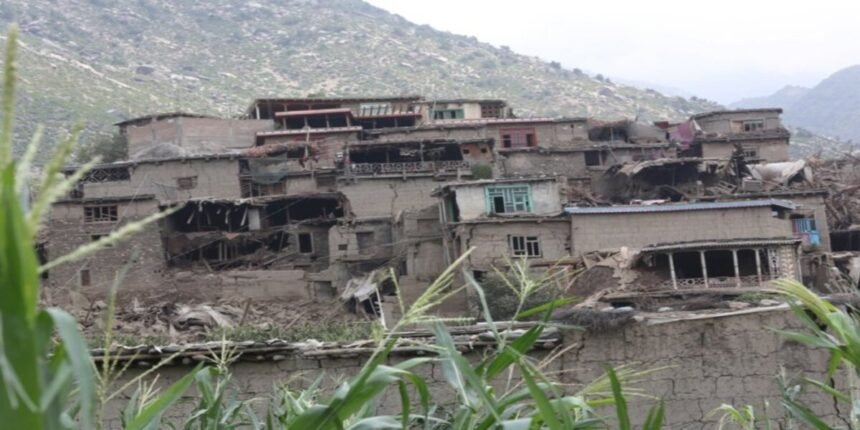A powerful 6.0-magnitude earthquake struck eastern Afghanistan near the border with Pakistan late Sunday, leaving at least 800 people dead and more than 1,300 injured, Taliban officials reported. The quake hit at a shallow depth of about five miles near Jalalabad, making it especially destructive. Authorities warned that the casualty numbers could rise as rescuers struggle to reach remote mountain villages.
Read more: Earthquake Jolts Islamabad, Lahore and Punjab Cities
The hardest-hit areas include Kunar and Nurgal, where many buildings, made of mud bricks and wood, were destroyed. Rescue teams have been mobilized, and hundreds of injured were airlifted to Nangarhar Regional Hospital, where medical resources are stretched thin. Several aftershocks ranging from 4.5 to 5.2 magnitude were also reported.
International organizations, including the United Nations, World Health Organization, and the International Federation of Red Cross and Red Crescent Societies, have deployed emergency teams to provide medical care, food, clean water, and support for search and rescue operations. The Afghan Red Crescent Society has also sent teams to assist affected communities.
Local residents described scenes of devastation and fear. Nabizada, a laborer from Kunar province, said his home was completely destroyed, forcing him to travel hundreds of miles to reach his family. “It took me more than 12 hours to reach my village. I found rubble where my house was,” he said.
The earthquake’s shaking was felt in Pakistan as far as Lahore, Peshawar, Mardan, and Murree. Indian Prime Minister Narendra Modi and Pakistani Prime Minister Shehbaz Sharif expressed condolences and offered humanitarian aid. Japan’s ambassador to Afghanistan also issued a statement expressing grief and readiness to assist.
Read more: Earthquake Tremors Felt in Islamabad and Northern Pakistan
Afghanistan, which has endured decades of war and recurring natural disasters, faces significant challenges in responding to the crisis. Previous earthquakes in Herat (2023) and Paktika (2022) killed more than 1,000 people each. With poor infrastructure and limited resources, authorities are racing to save lives and provide emergency relief to the affected population.


